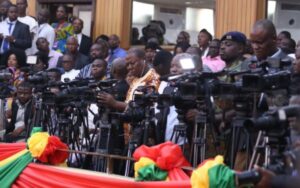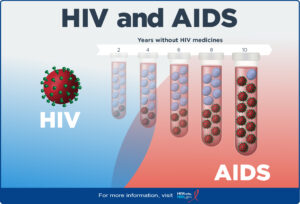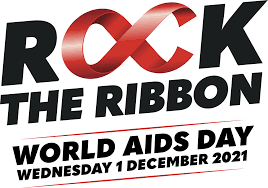On December 1 every year, the World AIDS Day is celebrated globally. HIV still remains a major public health issue that affects millions of people worldwide. Although the world has made significant progress in recent decades, important global targets for 2020 were not met.
Division, disparity and disregard for human rights are among the failures that allowed HIV to become and remain a global health crisis. Now, COVID-19 is exacerbating inequities and disruptions to services, making the lives of many people living with HIV more challenging.
The theme of World AIDS Day 2021 is “End inequalities. End AIDS”. With a special focus on reaching people left behind, World Health Organisation (WHO) and its partners are highlighting the growing inequalities in access to essential HIV services.
Tomorrow, December 1, 2021, WHO is calling on global leaders and citizens to rally to confront the inequalities that drive AIDS and to reach people who are currently not receiving essential HIV services.
Our Health condition is a critical area in the lives of humanity without which the human race cannot survive. The concept of the value and dignity of every human life is one that is sometimes missing in reporting on Health issues particularly HIV and AIDS. It is difficult to think about and discuss HIV and AIDS as people always hear the alarming statistics and want to push away and put the pandemic out of their minds.
Reporting on HIV and AIDS presents many challenges to journalists. One of the challenges is how to relate with people who have HIV and AIDS or who are otherwise affected by it. It is an unfortunate reality around the world that despite the many years that have passed since HIV and AIDS became a public Health crisis, there is still a social stigma attached to the pandemic.
But now, it has been understood that HIV and AIDS is no more just a health story but also a social, economic, political and developmental story since it is having a heavy toll on African especially women and children.
With the current conditions of health situations in Africa for that matter Ghana, it has become a known fact that the mass media could play an important role in raising the public’s awareness on health with special emphasis on HIV and AIDS as well as Malaria which are prevalence among many Ghanaians by reporting stories that promote prevention of the virus and reduce stigma associated with those suffering from it.
Ghana has a free and very active Media which also come with responsibility. Indeed the Ghanaian Journalist has the freedom to report what he /she feel the public needs to know. In the face of HIV and AIDS, the Media have a responsibility to apply the best journalism principles to their work of reporting accurately and completely on the pandemic after thorough research.
Accurate news coverage of HIV and AIDS can generate public and political support for fighting the pandemic. There is no doubt that the media influence public opinion and attitudes about HIV and AIDS including attitudes towards people living with the pandemic.
When the Media focus on particular issue, there is a higher degree of public awareness and support to tackle it by helping the public face this disease by educating people about transmission, prevention, treatment and most importantly by portraying PLWHIV with compassion and dignity.
The Media are in a position to raise greater public awareness of HIV and AIDS which is necessary before individuals can take critical look at the challenges that the pandemic presents and make informed decisions to help prevent its spread, protect themselves and ensure proper care and treatment.

It was based on the important role the media can play in helping change attitudes towards the HIV and AIDS disease through reporting that the Ghana Journalists Association has been organizing Workshops for Journalists from Print and electronic media who are into Health reporting including the writer.
The Workshops indeed expose Journalists to the fact that their role in public awareness, discussions and debate was very significant in various ways. Attitudes as we all know affect how people respond to HIV and AIDS and how people with HIV and AIDS are treated or cared for by their peers, employers, families, communities, the health care system and the justice system.
Journalism that tries to be relevant to its people must also deal with the problems and challenges of development. One area of development is the survival of the people.
How many Ghanaians know that there is a difference between HIV and AIDS or know that there are many service delivery points that provide Antiretroviral Treatment (ART) with ARV combination therapy in Ghana and that Voluntary Counseling and Testing (VCT) services are free to people who walk to the Clinic to know their HIV status?
Another area the Media need to explore in educating the public through their reportage is by resounding that there is no effective cure for HIV and AIDS and no vaccine has yet found even though researchers world wide have been trying for a break through.
In Ghana, there have been claims by some herbalists to have found cure which has scientifically not be proven. The question is what are Journalists and the nation doing to ascertain the effectiveness of such herbal medicines which do not cure the disease. Currently, available anti-retroviral drugs increase survival rate.
With the support of the Mass Media, the general public would get to know that HIV infection is the stage when one has the virus but shows no sign or symptom of the disease. In this case the person become a carrier of the virus and can pass it on to others. AIDS is the end stage which result from HIV infection, with indicated by characteristic signs and symptoms.
When reporting statistics, journalists are cautioned to be careful to make sure they understand what the numbers mean because it is easy to miss the true significance of a statistic and subsequently reporting the wrong information.
A good story with inaccuracies, however small it is, and leaving out key information distorts the truth of the story. For example a story may use a figure on the number of people who have AIDS in a given year and in a given place.
According to Experts, the stigma, prejudices, fear and the misconceptions surrounding HIV and AIDS were too abundant that, journalist need to be cautious about the language used to conceptualize and talk about the pandemic because it could reflect their personal biases and particular understanding or lack of understanding.

The Media need to be pro-active through their health reporters in highlighting HIV and AIDS prevention, care and support, Policy issues/implications including access to drugs, nutritional care, stigma and discrimination.
Through the action of the Journalist, the public should know that we do not have AIDS test but rather HIV test or instead of AIDS sufferer, it is appropriate to use HIV- positive person because many people with HIV and AIDS could have relatively good health for years and live happy lives.
As put it by the late Dr. Doris Yaa Dartey, a Media Consultant “The Media and journalists can perpetuate negative stereotypes, myths and misinformation in society and can hinder efforts for equal rights.”
People Living with HIV are not harmful or strangers but are just like people around us who have Diabetics, Asthma and other related sicknesses. One thing we must bear in mind is that People living with the pandemic can be leaders, activists, celebrities, spokespersons, therefore it will be good to attach a positive spin to the stories journalists write.
Our love and relation as Journalists with people living with HIV will give them hope as some have talents, capacities, privileges, intelligence and opportunities. Let us remember that the AIDS pandemic is a major obstacle to fighting poverty and promoting development. It threatens the social and economic infrastructure of the human family.
It is time journalists join the campaign and call on global leaders and citizens to rally to confront the inequalities that drive AIDS. As media practitioners, we can all contribute to the effort to end AIDS and make the world a healthier place.



